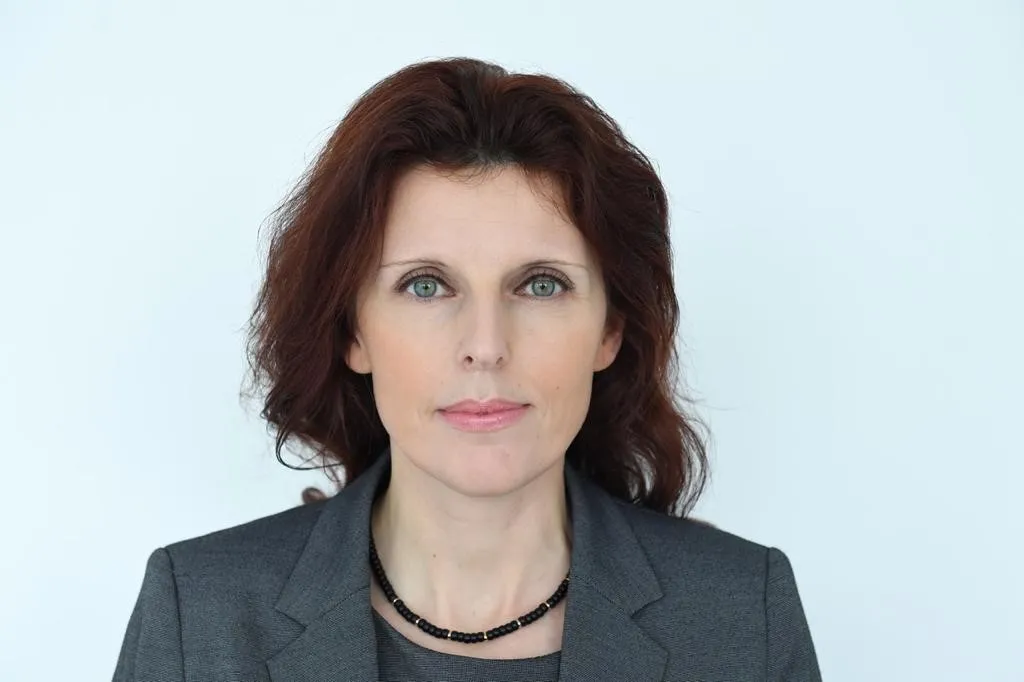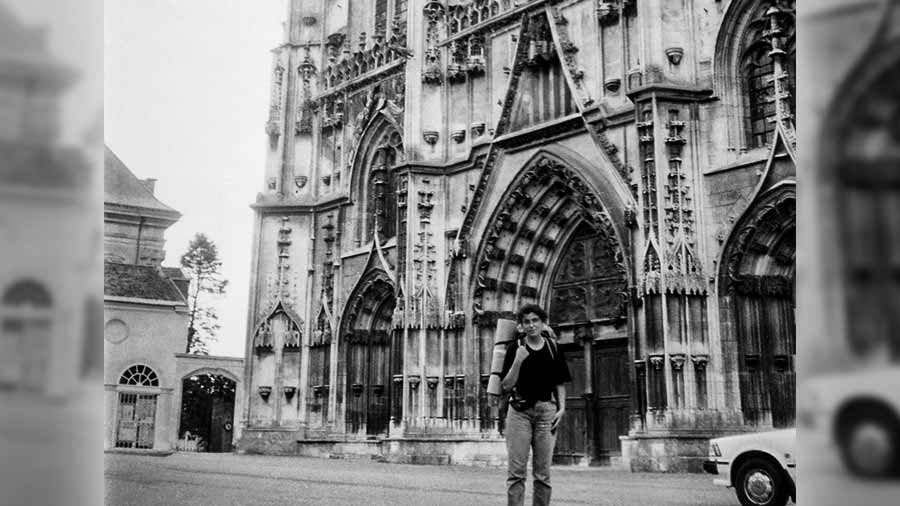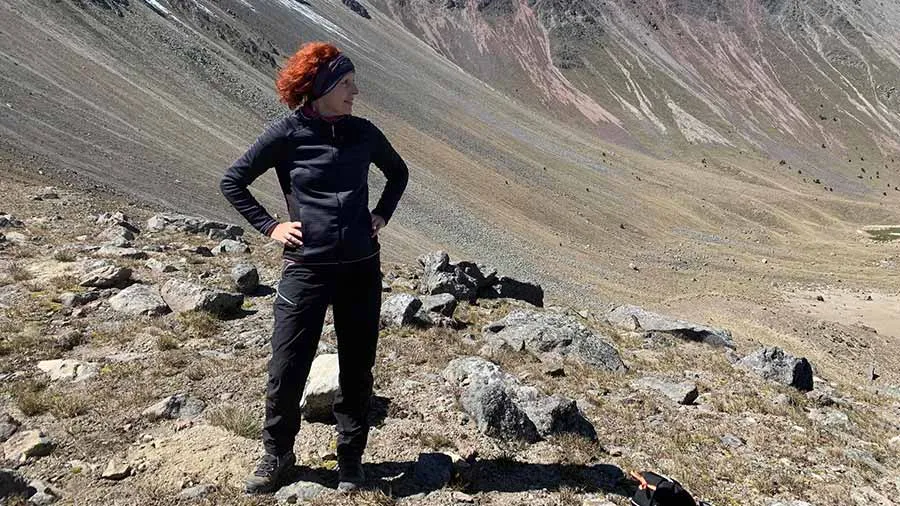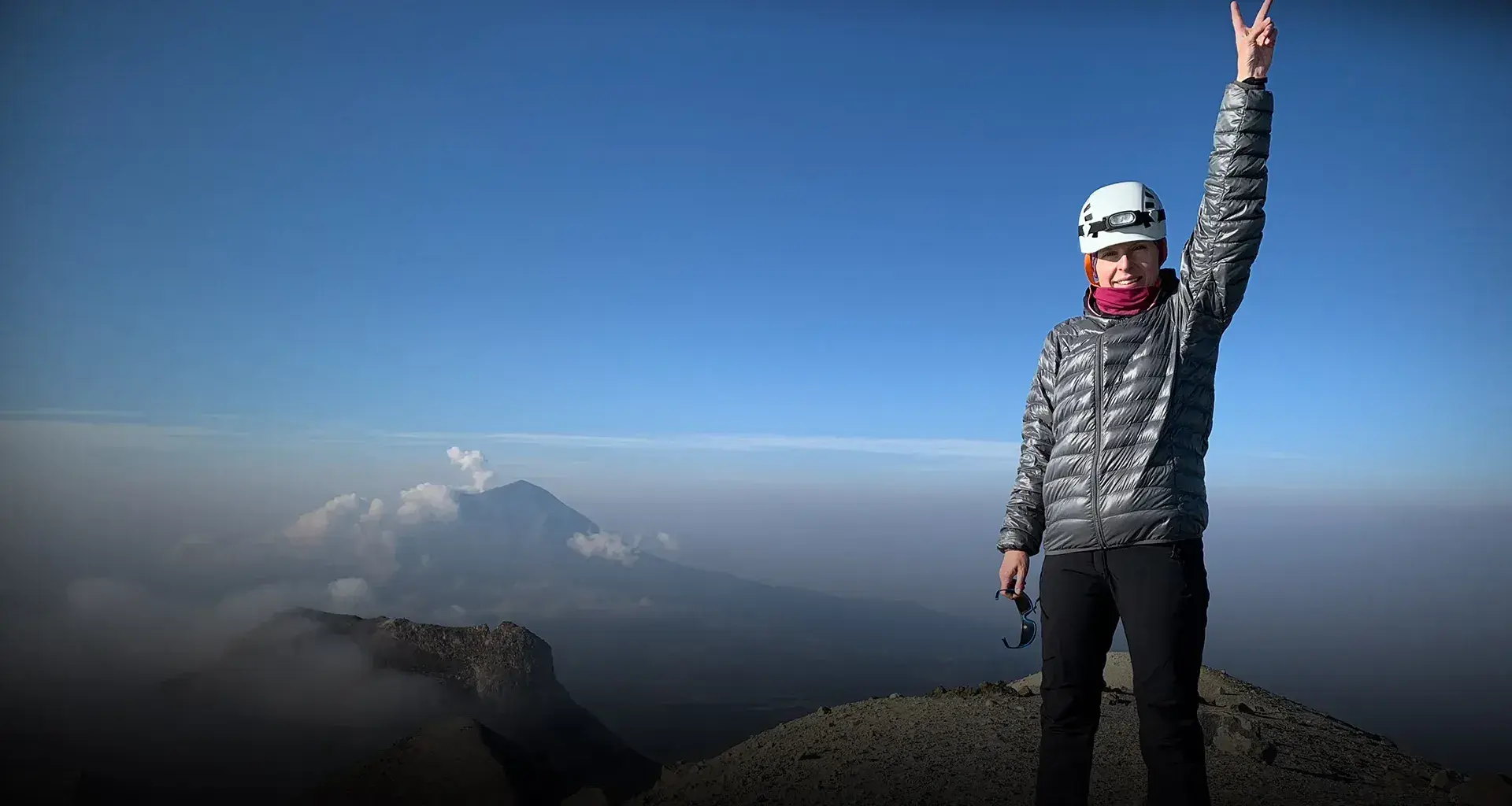“I arrived in Spain as a penniless immigrant who couldn’t speak the language. I went from cleaning houses to becoming an ambassador. My story, like those of many others, shows that we can achieve our dreams.”
This is how Beata Wojna sums up her life. Having been the Ambassador of Poland to Mexico, she is now an international relations professor at Tec de Monterrey.
Born under a communist regime, Beata crossed the border with a backpack and dreams of learning about other ideas and understanding other points of view beyond those around her.
That young woman who left Poland was fascinated on her way to Spain by the colors in the cities, houses, streets, and even people’s clothes, which was a complete surprise after growing up under communism.
Before studying at the Complutense University of Madrid, Beata was a young backpacker, an immigrant with a dream of seeing and understanding the world.

Leaving a communist country to see the world
Beata Wojna was born in 1972 and grew up in Poland where there was no such thing as private property or social classification, on the communist side of the Iron Curtain that divided Europe after World War II.
That political system made her question almost daily what was beyond her country’s borders. She wanted to know if all nations lived the same way and if life had always been that way; an idea that changed Beata’s entire life.
In the early 1990s, she had the opportunity to begin studying archeology at the University of Krakow, something she had wanted to do since she was a child when she had dreams of traveling and seeing the world.
But before starting, Beata wanted to visit Paris, the City of Light. Despite the challenges of the route, she put on her backpack and hitchhiked to the French capital.
“I’ve traveled a lot as a backpacker. I only had 100 dollars, which was very little money at the time. I slept in tents along the way from Krakow to Paris. It was like a dream,” she says.
“I’ve traveled a lot as a backpacker (…) I slept in tents along the way from Krakow to Paris. It was like a dream.”
The colors of the cities and the attention she received in the stores and restaurants were what fascinated Beata the most. She was also surprised by the public policies that existed in European cities.
Beata returned to Krakow, in the south of Poland, to start her studies in archeology. That’s when she decided that her future wouldn’t be in Poland, or at least not for a couple of years.
Far from capitalist Europe, Beata felt more and more the need to know the world, its history, and the reason for current situations.
“Those situations sparked something in me, encouraging me and pushing me to leave my home to try to change things, to educate myself to see things in a different way, and to have other chances in life.
“It was the beginning of a long search to find my path, which started when I was a teenager and was made more difficult by living in a communist country,” she says.

Traveling to Madrid with a full backpack
After returning from Paris, and after a year of studying archeology in Poland, Beata decided to pack her backpack again and board a bus to Madrid, aiming to study at a Spanish university.
As she wasn’t from a European Union country, Beata didn’t have access to scholarships, so she had to pay for her own education when she started at the Complutense University of Madrid at the age of 21.
“I had to work to study. It was difficult to start life as an adult, not only studying, but with all the expenses of living in a foreign country,” she says.
Without knowing the language, Beata cleaned houses, worked in several restaurants, and even did babysitting for some time, while the rest of the day was dedicated to homework and exams.
“That challenge taught me a lot and showed me that we have to fight if we want to move forward in life,” she says.
In the Spanish capital, Beata gave up her childhood dream of studying archeology and decided to study History and Geography instead.
“Around the third or fourth year, I realized that contemporary history was my thing. I decided to study for a graduate degree to go deeper and do research.
“Archeology was about understanding the past. I wanted to understand current events,” she said.
“Archeology was about understanding the past. I wanted to understand current events.”

Back to Warsaw with a new destination: Mexico
Beata spent a decade in Madrid, learning the language, studying for a master’s degree in History and a doctorate in History of International Relations.
In 2004, she returned to Poland on vacation and, looking for a place to work, sent her résumé to the Polish Institute of International Affairs in Warsaw.
She received a call with a job offer, which was a new challenge: returning to a country that had changed a lot since communism and to a city that she had never visited before.
“I was offered a job almost immediately. I come from the south of Poland and going to Warsaw was like starting from scratch, leaving friends and acquaintances, and rebuilding my life again,” she recalls.
As Deputy Director of the institute, doors were opened for Beata in both diplomacy and education, where she focused on both European and Latin American studies.
Her efforts to try to understand different global situations would lead to Beata being appointed as Ambassador to Mexico by the Ministry of Foreign Affairs.
In January 2014, Beata arrived in Mexico for the first time, with a political appointment under her belt.
It was very different from the time she walked to France or when she took the bus to Madrid, not even like when she moved to Warsaw. It was the first time she’d taken a plane to the other side of the world, where she would have to start from scratch again.
A house, a cat, and an embassy in Mexico
A house in Mexico City’s Las Lomas neighborhood, three suitcases, and a cat that ran around the property was how Beata began her career as Ambassador of Poland to Mexico.
“Jet lag affected my sleep. I went up to the roof, where I had an extensive view of the city, and watched the sunrise. It was a magical experience because I was starting a new life and I had so many things to do,” recalls Beata.
The city welcomed her with a new challenge. She had to prepare for the Polish President’s visit to Mexico, the first time this had happened in the history of bilateral relations between the two nations, which took place in 2017.
“It was a decisive moment in my career, but it was a lot of work, lots of preparation went into making sure everything went well.
“Also, on a personal level, understanding Mexicans was a challenge. After having lived in Spain for 10 years, I thought I would understand everything. But it turns out that they’re totally different. Accepting that was complicated and caused anger and stomach pains,” she recalls.
Wojna was ambassador to Mexico from 2014 to 2018. For her work, she received the Decoration of the Mexican Order of the Aztec Eagle.
“I arrived in Spain as a penniless immigrant who couldn’t speak the language. I went from cleaning houses to becoming an ambassador. My story, like those of many others, shows that we can achieve our dreams.”
Arriving at Tec de Monterrey
Accepting and understanding Mexicans was challenging for Beata, but she says that it also helped her to interact with people in Mexico who were kind to her. She even met her husband here.
After getting married in 2016, she decided that she would stay in Mexico at the end of her diplomatic mission, so she looked for a place to continue her career.
“I ran into the President of Tec de Monterrey at an economic forum in Davos, Switzerland. We chatted briefly and he told me to send him my résumé.”
Beata did not hesitate to accept the invitation and from then began to teach classes at Tec de Monterrey, some at the Santa Fe campus and others at the Mexico City campus.
“I attended some forums at the Santa Fe campus. I had already worked at a private university in Poland and had experience in that field, and I had always wanted to work in a university,” she says.
Wojna adds that hiking is another of her passions, which Mexico is ideal for.
Seeking to understand the world before, sharing her vision now
It was February 2022. War had broken out in Ukraine and Russian troops were advancing to invade the country neighboring Beata’s native Poland. Media outlets around the world were desperate to hear experts’ opinions.
So, Beata’s remarks began to appear on news websites in Mexico and Latin America, as she shared her vision of the situation in Ukraine.
Today, she is a columnist for El Heraldo de México and has appeared on dozens of Mexican media outlets to explain the situation as an analyst.
Beata not only shares her knowledge but also her experiences, something that she also aims to teach her students.
Her passion to find new ways to face challenges and problems from different perspectives is something that she shares in her classes.
“Never stop walking. Don’t stay still. Sometimes, walking is how we achieve things.”
However, she pauses to think about the legacy she would like to leave her students.
“I think it’s very important to convey the message that it’s possible to achieve the things you want. We don’t always start from the place we’d like, but that doesn’t mean we can’t get to where we want to be.
“Effort and discipline are crucial. There are forces that want to lead us astray, but if we’re convinced we want to achieve something, it can be done,” she says.
Beata wants to teach her students about the dreams of a young girl in a communist country, her desire to see the world, the routes she took as a backpacker, and her work and life experiences.
“I want to show that it’s possible. Never stop walking, literally and metaphorically speaking.
“Never stop walking. Don’t stay still. Sometimes, walking is how we achieve things,” Beata concludes.
READ MORE:





